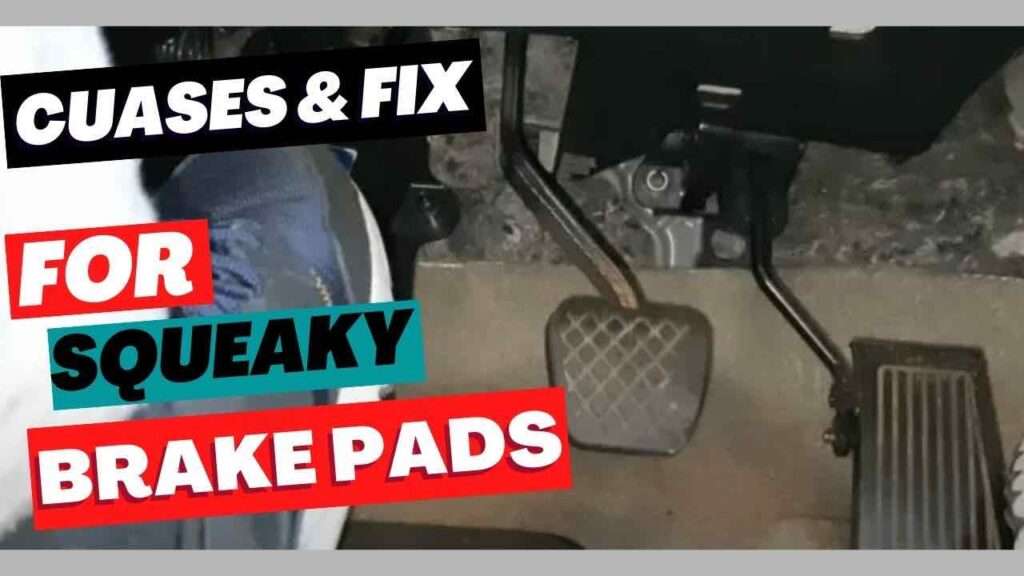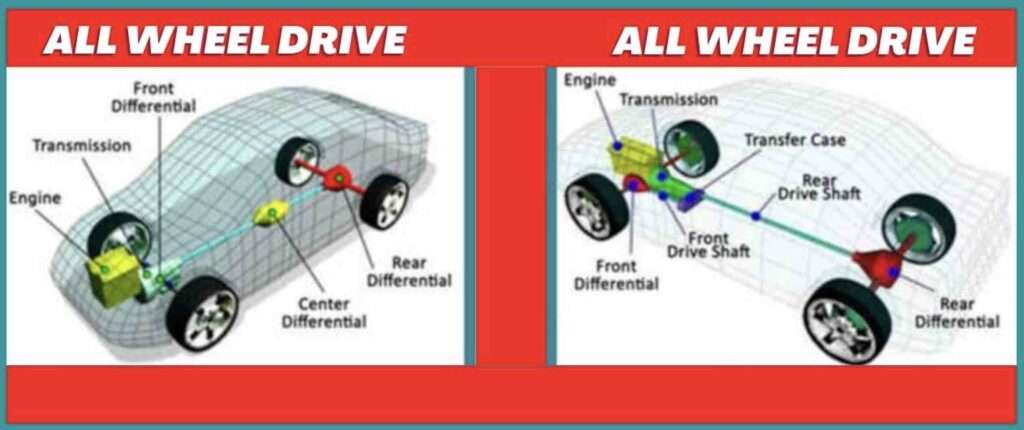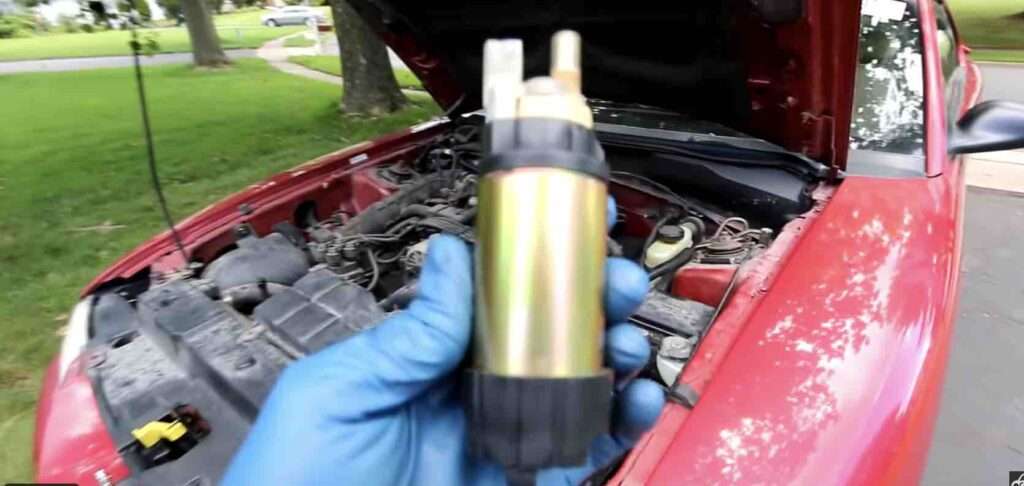Last updated on June 23rd, 2023 at 06:56 am
A bad torque converter or bad transmission could cause different problems in your vehicle. And this is because they are two separate components with different functionality though they complement each other. You can diagnose or fix any issues you may be having with your car by understanding what signs each part gives when they are faulty or bad. And that means knowing the differences between a bad torque converter vs bad transmission and their symptoms.
And that is why in this article, I will be showing what causes a bad torque converter vs bad transmission and symptoms, What are signs of a failing transmission are, what does a failing torque converter sound like, and finally, How do you test a torque converter. So with that in mind, let’s get started early signs of transmission problems and bad torque converter.
Overview of bad torque converter vs bad transmission
The torque converter helps transmit power from the engine to the car transmission. A bad or faulty torque converter can lead to many issues, such as reduced or poor fuel efficiency, gear shifting problem, and hesitation when accelerating.
The car’s transmission, on the other hand, helps transmit power from the car engine to the wheels of a vehicle. A faulty or bad transmission can cause difficulty shifting gears, grinding, shaking, or inability to shift at all. Etc.
| Causes of a faulty or Bad torque converter | Causes of a faulty or Bad Car Transmission |
|---|---|
| The torque converter is a hydraulic or fluid coupling found in vehicles with automatic transmissions and helps transfer power from the engine to the transmission. It does this by converting the torque (or rotational force) from the engine into hydraulic pressure, which is then used to turn the transmission gears and move the vehicle. | On the other hand, a car transmission is responsible for shifting gears and determining the final drive ratio of your car engine, which determines how much power is sent to the wheels enabling speed. The transmission is a much more complex system comprising of gears, clutches, and many other components that work together to transmit power from the engine to the wheels. |
| There are several potential causes of a bad torque converter. One common cause is a malfunctioning lock-up clutch. The lock-up clutch is a component in the torque converter that helps to improve fuel efficiency by allowing the engine and transmission to work together more efficiently. If the lock-up clutch is not functioning properly, it can cause the torque converter to slip, leading to the symptoms which will be listed below. | There are several potential causes of a bad transmission. One common cause is a malfunctioning clutch. The clutch is a manual transmission component that helps transfer power from the engine to the drive wheels. If the clutch is not functioning correctly, it can cause the transmission to slip or not to shift. A bad transmission can be due to a malfunctioning torque converter. The torque converter is a component in an automatic transmission that acts as a fluid coupler between the engine and the transmission. If the torque converter is not functioning correctly, it can cause the transmission to slip or produce noise. |
| Another possible cause of a bad torque converter is a malfunctioning impeller or turbine. The impeller and turbine are components in the torque converter that help to transfer power between the engine and the transmission. If these components are damaged or not functioning properly, it can cause the torque converter to slip or produce noise. Lastly, a bad torque converter can also be caused by a malfunctioning pump or seal. The pump helps to circulate the transmission fluid through the torque converter, while the seal helps to prevent leaks. If either of these components is damaged or not functioning correctly, it can cause the torque converter to fail. It’s worth noting that torque converters can also fail due to wear and tear over time. As with any component in a vehicle, torque converters are subject to wear and tear and may eventually need to be replaced. | A bad transmission may also result from a malfunctioning shift solenoid or valve body. The shift solenoid is a component that helps to control the shifting of gears, while the valve body helps to control the flow of transmission fluid. If either of these components is damaged or not functioning correctly, it can cause the transmission to fail. And lastly, transmissions can also fail due to wear and tear over time, just like other car parts, and may need to be replaced. If you suspect that you have a bad transmission, it’s essential to have it checked out by a mechanic as soon as possible. |
How do you tell if the transmission is bad or the torque converter?
If you are wondering whether it is the bad transmission or a bad torque converter that is causing issues with your car, well below are some common symptoms that can be seen in both parts when they are faulty; however, there are just a few different ones. It would be best if you looked at the break of the sign for each part, i.e., a bad torque converter vs bad transmission, to identify them:
- Difficulty shifting gears
- Slipping gears
- When shifting gears, you might hear a lot of noises.
- When shifting into gear, there is a delay in movement.
- Burning smell
- Transmission fluid leakage
- Make sure your engine light is on.
A mechanic will diagnose the problem to determine if it is the transmission or the torque converter. A mechanic will usually check the transmission fluid and perform a road test to examine the vehicle’s behavior. Finally, he may use diagnostic equipment to scan for errors in the computer.
bad torque converter symptoms
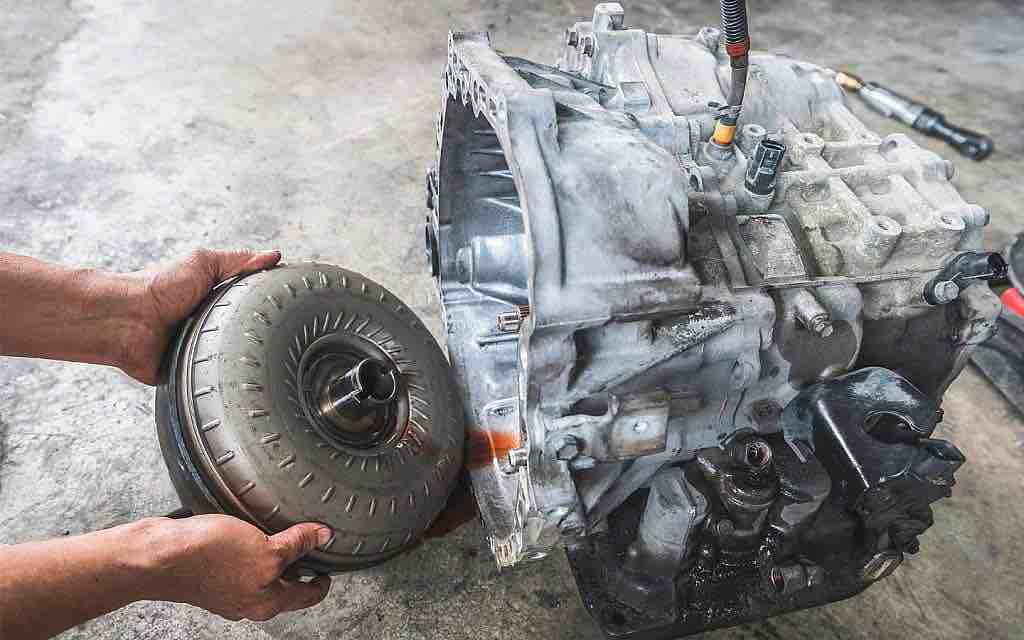
Here are some of the common torque converter problems signs or bad torque converter symptoms to look out for:
1. Slipping issue:
The torque converter may need to be transferring power effectively, causing the engine to rev without the vehicle moving or accelerating as it should. This can happen when the car is in gear but not moving or when the transmission is shifting gears. The vehicle may also feel sluggish or unresponsive.
2. Hummin or whiling Noise:
A bad torque converter can produce a humming or whining noise while the vehicle is in gear. This noise may be more noticeable when the car is in gear but not moving or when the transmission is shifting gears.
3. Overheating:
If the torque converter is not functioning correctly, it can cause the transmission to run hot, leading to various problems, including reduced transmission life and damage to other components.
4. Poor fuel economy:
A faulty torque converter can cause the engine to work harder, resulting in reduced fuel efficiency. This will make your engine revive a lot more without accelerating as it should be due to the transmission not shifting gears properly.
5. Check engine light:
A bad torque converter can sometimes trigger the check engine light to come on. This can be due to various problems, including a faulty sensor or a malfunctioning component in the transmission.
6. Fluid leakage:
A torque converter can develop a leak, which can cause the transmission fluid level to drop. This can lead to various problems, including reduced transmission performance and damage to other components.
7. Stalling:
If the torque converter is not functioning correctly, it can cause the engine to stall at low speeds and when it is stopped. A stalling vehicle can sometimes be dangerous if it happens while the car is being driven.
8. Shuddering:
A bad torque converter can cause the vehicle to vibrate, especially when the car transmission is shifting gears. So if you notice that your car shakes when shifting gears, it could be a sign of a damaged or bad torque converter. Sometimes it might be other components in the transmission too.
You should also know that these symptoms can be caused by other problems as well, and the only way to accurately diagnose the issue is to have a mechanic thoroughly inspect the vehicle.
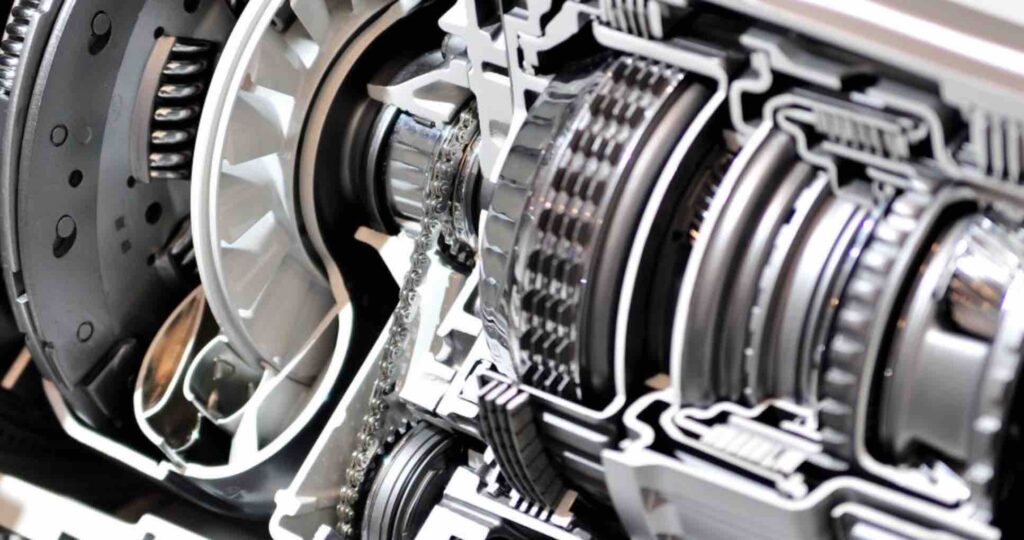
Symptoms of a bad car transmission.
A transmission is a complex system that helps to transfer power from the vehicle’s engine to the drive wheels of a vehicle. A bad transmission can cause a variety of problems, and some common Automatic transmission failure symptoms include:
#1. Delay in gear engagement:
The transmission may not shift into the desired gear, or there may be a delay before it engages, which causes the vehicle to feel sluggish or unresponsive and can lead to other problems, like overheating of the engine.
#2. Grinding or shaking:
A bad transmission can cause the vehicle to shake or vibrate, or there may be a grinding noise when shifting gears. If you notice a shaking or grinding noise in your car, it signifies damage to the transmission gears or other components.
#3. Leaks:
A transmission fluid leak can indicate a problem with the transmission. Various issues, including a faulty seal or a damaged component, can cause this.
#4. Check engine light:
A bad transmission can trigger your car’s check engine light, and that is because the check engine light is an indication of a faulty part. So if the transmission is faulty or any part/ sensor around it is damaged, the check engine light can come on.
#5. Slipping gears:
If the transmission is damaged, your car gear may slip, resulting in power loss or accelerating unexpectedly. And yes, this can be dangerous if it happens while the car is in motion.
#6. Erratic shifting:
A transmission that is shifting erratically or unexpectedly can be a sign of a problem. This sign can include shifting into the wrong gear or not shifting at all.
#7. Fluid leakage:
A transmission fluid leak may indicate a faulty transmission sometimes, usually a tear. A transmission fluid leak can lead to various issues, including reduced transmission performance and damage to other components.
#8. Noisy operation:
A damaged or faulty transmission can produce a variety of noises, including grinding, whining, or humming. If you notice such noises, it could be a sign of a problem with the gears, or it may be other components in the transmission. This is one early signs of transmission problems.
It’s vital to note that other problems can cause these symptoms, and the only way to accurately diagnose the issue is to have a mechanic thoroughly inspect the vehicle.

Ozioma is an electric car devotee with a background in mathematics, education, and over 10 years of experience teaching in various institutions. He has held multiple positions in the academic world for the past years. Right now, in his free time, he enjoys researching on cars and keeping up-to-date with what is happening in the automotive industry, as well as writing on the topic. His deep understanding and love for cars makes him the perfect candidate for providing reliable information on trending stats in the auto industry and how to guide automobile topics. We are happy to have him as one of our Authors.

